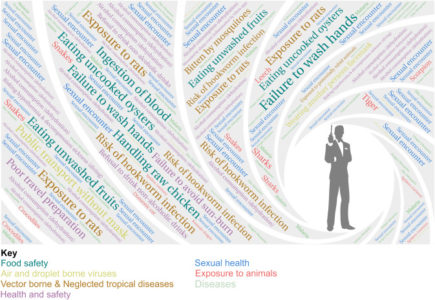Aluminum woes, vax mandates in Georgia, death by deli, and more
28 Oct 2021
Posted by Andrew Kantor
e
UGA, Georgia Tech announce vaccination requirements
Both UGA and Georgia Tech said they will require employees who work “on or in connection with a federal contract” or in a “covered contractor workplace” to be vaccinated or lose their jobs. And considering how much federal money comes in, that’s effectively most of the campuses — e.g., “employees who perform support functions such as human resources, billing, legal review, and other support functions.”
Non-employees “will also be required to follow Centers for Disease Control and Prevention guidance on masks while in covered contractor workplaces, which will likely include a large portion of campus.”
UGA employees will have until November 24 to get their final vaccine.

Battle of the unproven Alzheimer’s drugs
Lilly joins in the cash grab with donanemab, its rival for Biogen’s Aduhelm. It’s got an accelerated review from the FDA, limited data, and is only in a phase 2 study. But just because there’s limited data — it may not even work! — doesn’t mean the company isn’t hoping for a conditional approval in late 2022.
Stopping chronic pain: NAAA? Nah
What makes acute pain turn into chronic pain? (We’re talking physical, not existential.) UC Irvine researchers think they’ve found it. They knew it had to do with nerve damage, but the details weren’t clear. Now they (hopefully) are.
The difference is an enzyme called N-acylethanolamine acid amidase (NAAA) — it “a critical control point in the progression to pain chronicity.” Stop the NAAA, stop the progression to chronic pain. Luckily, they say, NAAA “can be effectively targeted by small-molecule therapeutics that inhibit this enzyme.”
Coming soon, they hope, will be a new class of drugs for use after trauma or surgery: NAAA inhibitors.
* Technically an N-terminal cysteine hydrolase
The CDC wants you to hide the salami
If it’s from Trader Joe’s (Citterio brand), it’s responsible for an outbreak of salmonella that has sickened at least 20 people in eight states.
Making antibiotics better
Aussie and U.S. researchers found what seems like a simple way (if you’re a molecular biologist) to turn existing antibiotics into drugs that can kill superbugs.
When it’s fighting bacteria, the body naturally recruits immune cells called neutrophils to attack the infection, using a chemical attractant — like calling middle schoolers using a can of Axe Body Spray.
So what did these biomedical researchers do? They sprayed the drugs with metaphorical Axe Body Spray, giving the drugs themselves the same attractant to “enhance the recruitment of immune cells and improve their killing ability.”
“We’ve been working on using dual-function antibiotic-chemoattractant ‘hybrids’, which improve the recruitment of neutrophils and increase the engulfing and killing of the bacteria. […] [W]e’ve shown in mouse models that the treatment is 2-fold more effective than just using the antibiotic alone at one-fifth lower dose.”
Should you worry about “Delta-plus”?
Meh, probably not … if you’re vaccinated. It might be a little more transmissible, but current vaccines work a treat. The unvaccinated? Yeah, you might want to rethink your position.
Aluminum-shortage dominoes
There’s an aluminum shortage going on. “So what?” you say. “What’s that doing in a pharma/health newsletter?”
Well, what if you need crutches?
Watch the dominos fall!
- Australia backed an investigation into China’s handling of the Covid-19 outbreak.
- China responded by banning coal imports from Down Under, where it get (got) 38% of its supply.
- The economy recovered. Factories restarted.
- China needed a lot more energy for factories, but couldn’t produce enough. It needed more coal. But it still won’t buy from the Aussies because … kangaroos. And pride.
- Aluminum is soft until you add magnesium.
- 75% of the world’s magnesium comes from China, and it takes a lot of energy to make.
- Thus, magnesium shortage … and a shortage of crutches.
Science marches on
In Elsevier’s journal Travel Medicine and Infectious Disease we have “No time to die: An in-depth analysis of James Bond’s exposure to infectious agents” in which researchers from the Netherlands and the U.K. “hypothesized that agents pre-occupied with espionage and counterterrorism may, at their peril, fail to correctly prioritize travel medicine.”
Given how inopportune a bout of diarrhea would be in the midst of world-saving action, it is striking that Bond is seen washing his hands on only two occasions, despite numerous exposures to foodborne pathogens. We hypothesize that his foolhardy courage, sometimes purposefully eliciting life-threatening situations, might even be a consequence of Toxoplasmosis.



